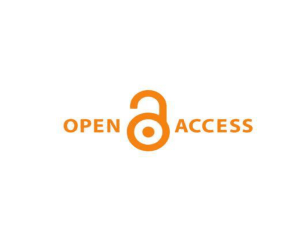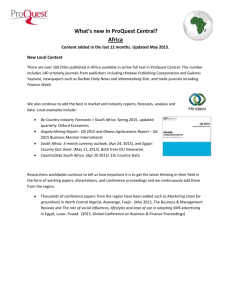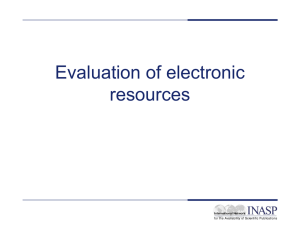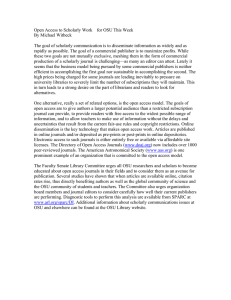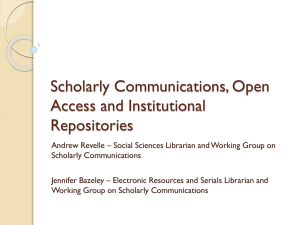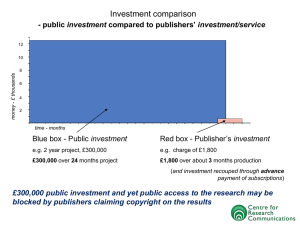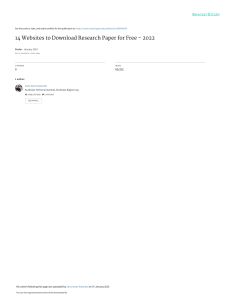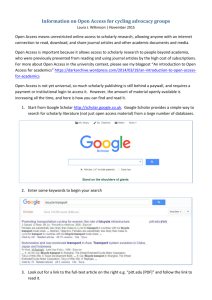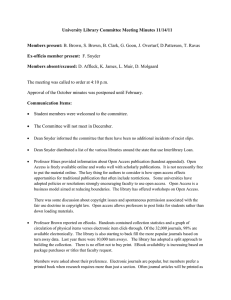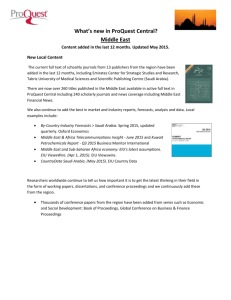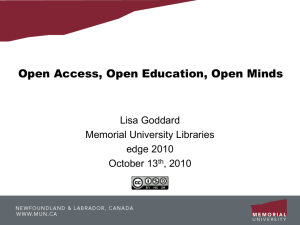Journals Full Text Resources Including MedIND
advertisement
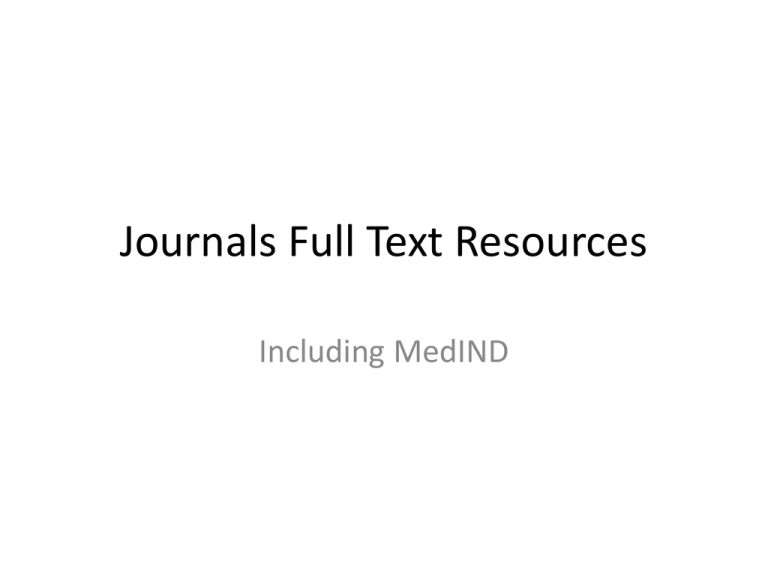
Journals Full Text Resources Including MedIND For Scholarly Information • We start with Bibliographic Databases having references to journals and other scholarly literature • Knowledge of search techniques is required for effective searching – PubMed, Scirus – International – IndMED – Indian • Finally we may require full text of Journal Articles Full text Journal Articles • Most expensive Resource • No Library can afford all the journals / Not even the core Journals of a subject • Internet has become the first place to look for Journal Articles • How about Internet Resources ? Ok, let us start with Google.. http://scholar.google.com/ http://www.ncbi.nlm.nih.gov/pmc/ http://www.freemedicaljournals.com/ http://www.bioline.org.br/ http://www.scielo.org/php/index.php?lang=en http://highwire.stanford.edu/lists/freeart.dtl https://www.jstage.jst.go.jp/browse http://www.openjournals.net/index.php/journals/browse-by-title Open Access and OA /Free Resources • Open Access Publishers • Indian Journals online • Institutional / Subject Repositories I am not talking about • Open Source • Open Standards • Right to Information But on similar concept • It relates to access to results of public funded research • It relates to access to that knowledge which scientists and scholars give away for free after years of hard work Research Impact 12 – 18 Months Now the Question being asked is Where is the catch? • Scientists / scholars need to publish articles • Publishers seek transfer of copyrights in their favour in lieu of publication of their articles • They had no other alternative than to gave away their copyrights to get their articles published Open Access is the answer to the ills of conventional academic publishing Open-access (OA) literature • is [scholarly,] digital, online, • free of charge, • and free of most copyright and licensing restrictions. What makes it possible is the internet and the consent of the author or copyright-holder. [Peter Suber -http://www.earlham.edu/~peters/fos/brief.htm] Impact “Articles freely available online are more highly cited. For greater impact and faster scientific progress, authors and publishers should aim to make research easy to access”. Online or Invisible? Steve Lawrence. Nature, Volume 411, Number 6837, p. 521, 2001. http://citeseer.ist.psu.edu/online-nature01/ Open Access (OA) means free and online access to scholarly literature that can be freely disseminated further with proper author attribution. It brings down barriers to scientific communication by using Internet Open Access Publishing • Open Access Journals perform peer review like their conventional counterparts and then make the approved contents freely available to the world. http://www.doaj.org/ http://www.biomedcentral.com/ http://www.plos.org/ Open Access Repositories • Open Access Repositories allow authors / right holders to deposit their articles • May allow preprints (pre-published manuscripts) • Normally allow post-prints (peer-reviewed and published articles) • Most reputed academic publishers allow authors to deposit some version of their articles in such repositories http://www.opendoar.org/index.html Open Access and India Open Access Journals http://www.doaj.org/doaj?func=journalsByCountry&cId=89&year=2013&uiLanguage=en Open Access Hosts / Publishers http://www.ias.ac.in/ http://medknow.com/ 64 Indexed Journals from India http://medind.nic.in/ Open Access Repositories Indian Institute of Astrophysics Repository National Aerospace Laboratories Central Marine Fisheries Research Institute http://eprints.cmfri.org.in/ http://repository.ias.ac.in/ http://dkr.cdri.res.in:8080/dspace/index.jsp http://dspaces.uok.edu.in:8080/jspui/ http://openmed.nic.in/ http://www.nihfw.org/National%20Health%20Portal.html THANKS
